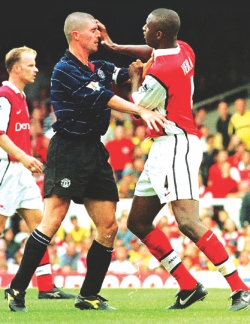
Les Miserables
By Neshmeen Faatimah
From one of the longest novels ever written to one of the longest running stage shows ever produced, Les Miserables is now one of the most successful musicals ever to have ever graced the screen.
It sounds horribly difficult cramming a book the size of Gone With the Wind into 158 minutes of screen time (and even harder to summarize its plot into a paragraph, so bear with me through the next one) but Hooper did it perfectly, without sacrificing too many important details or making the movie feel too rushed.
 Les Mis is the story of Jean Valjean (Hugh Jackman), a man imprisoned for 18 years in 19th century France for stealing a loaf of bread to feed his sister's child. After finally being freed on parole, but unable to get a job to feed himself because of his record as a convict, Jean is an emaciated soul filled with hatred and vengeance. But when he is given shelter by a kind bishop, Jean is driven to reformation and redemption through the unbelievable generosity and benevolence offered to him. He changes his identity and leaves his past behind, eventually becoming a factory owner, mayor of a town in France and father to an orphaned girl, Cosette (Amanda Seyfried), the daughter of Fantine (Anne Hathaway), his former worker driven to prostitution, abuse and death by evil innkeepers, the Thenardiers (Sacha Baron Cohen and Helena Bonham Carter), who exploited her for taking care of Cosette. But trying to save a man wrongly prosecuted, his real identity is revealed and policeman Javert (Russell Crowe), a man who does not believe criminals can ever change is determined to punish him for breaking his parole, chasing him through decades of the repressive French government.
Les Mis is the story of Jean Valjean (Hugh Jackman), a man imprisoned for 18 years in 19th century France for stealing a loaf of bread to feed his sister's child. After finally being freed on parole, but unable to get a job to feed himself because of his record as a convict, Jean is an emaciated soul filled with hatred and vengeance. But when he is given shelter by a kind bishop, Jean is driven to reformation and redemption through the unbelievable generosity and benevolence offered to him. He changes his identity and leaves his past behind, eventually becoming a factory owner, mayor of a town in France and father to an orphaned girl, Cosette (Amanda Seyfried), the daughter of Fantine (Anne Hathaway), his former worker driven to prostitution, abuse and death by evil innkeepers, the Thenardiers (Sacha Baron Cohen and Helena Bonham Carter), who exploited her for taking care of Cosette. But trying to save a man wrongly prosecuted, his real identity is revealed and policeman Javert (Russell Crowe), a man who does not believe criminals can ever change is determined to punish him for breaking his parole, chasing him through decades of the repressive French government.
Two and a half hours of just singing (there wasn't one line spoken normally in the movie) might sound like a bit too much for some. It does take some patience to be able to take it all in, but if one is prepared to watch with an open mind, the dramatic and tear-jerking moments of the movie don't do too bad in holding one's attention. It is very unique in comparison to other musicals as the actors were made to actually sing their parts while shooting instead of lip-syncing to pre-recorded tracks, making their emotions and movements feel and look more realistic (and whoever knew Hugh Jackman could sing so well?). The casting was nothing short of perfect, the visuals quite amazing. But that said, I guess I still do understand where the mixed reviews came from. It's not a movie for everyone, that's for sure.
MOVIE REVIEW
FUN FACT:
Since Hooper relied heavily on authenticity, in order to improve his actors' performances, he shipped in tons of stinking fish and seaweed to replicate the smell of street grime on set. “…loads of turnips that we got real cheap. We also had a cow living there and some chickens.”

MUSIC
MOZART EVERYWHERE
By Sarah Nafisa Shahid
 Even if you don't listen to Western Classical Music, you surely have heard of Mozart. And even if you don't listen to Mozart, you still have heard him anyway. His music is pretty much everywhere starting from that irrelevant background piano music in Chinese restaurants or the annoyingly mechanized piece of music inside the lift to even that tune you hum to when you're put on hold during a call. Believe it or not, but your subconscious mind is a regular listener to this musical genius.
Even if you don't listen to Western Classical Music, you surely have heard of Mozart. And even if you don't listen to Mozart, you still have heard him anyway. His music is pretty much everywhere starting from that irrelevant background piano music in Chinese restaurants or the annoyingly mechanized piece of music inside the lift to even that tune you hum to when you're put on hold during a call. Believe it or not, but your subconscious mind is a regular listener to this musical genius.
Like most classical music big names, this Austrian musician was a prodigy too, composing from an age as early as five. He was born in a musical family and hanged out with musical associates and travelled in musical groups too, and hence, met the love of his life Aloysia who was a musician as well. Just like a Grey's Anatomy sort of sitcom where the doctors are replaced by musicians. Unfortunately, things didn't work out and Mozart ended up marrying Aloysia's younger sister, making it a total sitcom style story.
But thanks to his eventful life, which also accounted for unemployment and depression for some time, we have 600 brilliant masterpieces that are being played and reproduced for more than 300 years now. Intricacy in Mozart's compositions and the skills that he could imply were so extraordinary that it had reshaped an entire genre in the making and even influenced another prodigy, Ludwig Van Beethoven. Research says that listening to Mozart can actually make you temporarily smarter and improve your test results.
Mozart's birthday was on the 27th of January, sharing it with Bartolomeo Cristoferni, the guy who invented the piano.
To celebrate the genius of classical music, try giving these a listen:
Concerto for Piano and Orchestra No.20, Romance
Eine Kleine Nachtmusik (that music in every classic cat and mouse chase, yo know, Tom and Jerry)
The Marriage of Figaro
Requiem (his unfinished work which is still almost an hour long)
If you're into Mozart or classical music, you can watch:
Little Einstein: It's a Nickelodeon show for kids, kind of like Dora the Explorer for classical music, except that it's really fun and this writer is a fan.
Amadeus: A film about Mozart's life. The actor who played Mozart was nominated for the Oscars.
SPORTS
THE DEATH OF HACK-MEN
By The Anfield Cat
 Remember the good old days of football when you would switch on your television sets, popcorn in hand, hoping to see your team end up on the winning side, only to witness a complete bloodbath as the pitch was turned into the flashy platforms of WWE as players pulled off choice finishing moves on one another? Those days are really fading away into obscurity. Gone are the days when people would go onto the football pitch with the sole intention of maiming and scything through limbs, without a care of where the ball was. That's Roy Keane for you. And Robbie Savage, too, if you throw in some shiny golden locks. We are, sadly or otherwise, coming to the end of the 'Hack-men' era of football, which is being hurriedly replaced by the more 'cultured' area of simulations and rolling around on the floor hoping to win an Oscar. Today we take a look at the pros and cons that have come from this change in the game.
Remember the good old days of football when you would switch on your television sets, popcorn in hand, hoping to see your team end up on the winning side, only to witness a complete bloodbath as the pitch was turned into the flashy platforms of WWE as players pulled off choice finishing moves on one another? Those days are really fading away into obscurity. Gone are the days when people would go onto the football pitch with the sole intention of maiming and scything through limbs, without a care of where the ball was. That's Roy Keane for you. And Robbie Savage, too, if you throw in some shiny golden locks. We are, sadly or otherwise, coming to the end of the 'Hack-men' era of football, which is being hurriedly replaced by the more 'cultured' area of simulations and rolling around on the floor hoping to win an Oscar. Today we take a look at the pros and cons that have come from this change in the game.
For the last couple of years, pundits have moaned about the dying art of tackling in the game. They moaned about the fact that 'studs up' tackles and two-footed lunges are now by default red cards and constitute 'dangerous play', regardless of whether the tackler got the ball or not. It means that players like Patrick Viera would've been essentially out of a job had they still been playing. It also means that it gives the more 'gifted' players like Lionel Messi and Cristiano Ronaldo that bit more freedom and space as tacklers now think twice before going into a full-blooded tackle. It all results in a more attacking game, where slick passers and fluid movers excel.
That's all well and good if you're a Barca fan. But what happens if you support Stoke City? Or one of Sam Allardyce's battle-hardened teams? It effectively puts a handicap on your team's combative style of play as referees blow the whistle more readily now at anything approaching minimal contact. The amount of times the referee stops the ball on account of fouls has risen exponentially over time and it all makes for a stuttering and fractured display of football. Some people would go so far as to suggest that players have now become 'sissies', where even a slight breeze striking them wrong can induce fatal bodily injuries on to them. Or at least, that's what they make it out to be.
And there lies the worst thing to have come out of the game losing its physical side: the simulation. The field is the theatre for some and they walk out of the tunnel every time with the hope of finally fulfilling their long-lasting Hollywood dreams with play-acting of the highest order. In fact, it's so good sometimes that you have to step back and applaud them for it. Busquets comes to mind as a leading candidate, as does the ball 'boy' from Swansea (that was a stirring performance, there). It could be argued that this 'gamesmanship' is just as bad and that we've gotten a little too in touch with our feminine sides by stopping every time someone trips over. If you ask me, it's all part of the cycle. Soon people will get tired of these players and that's when someone like Pepe will rear his head from the trenches and hack down everyone in sight with a blood-stained blunt axe. Oh wait, he already does.
